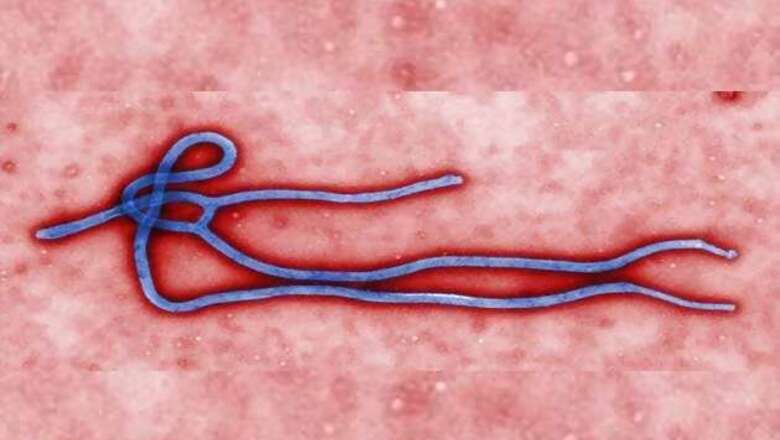
views
Geneva: The Ebola epidemic is moving faster than the authorities can handle and could take six months to bring under control, the medical charity MSF said on Friday.
The warning came a day after the World Health Organization said the scale of the epidemic had been vastly underestimated and that "extraordinary measures" were needed to contain the killer disease.
The UN health agency said the death toll from the worst outbreak of Ebola in four decades had now climbed to 1,069 in the four afflicted West African countries -- Guinea, Liberia, Nigeria and Sierra Leone.
"It is deteriorating faster, and moving faster, than we can respond to," Joanne Liu, the chief of Doctors without Borders, known by its French acronym MSF, told reporters in Geneva. She added that it could take six months to get the upper hand.
"It is like wartime," she said a day after returning from the region. "I don't think we should focus on numbers. To really get a reality check, we're not talking in terms of weeks, but months" to control the epidemic."
WHO on Thursday said it was coordinating "a massive scaling up of the international response" to the epidemic. "Staff at the outbreak sites see evidence that the numbers of reported cases and deaths vastly underestimate the magnitude of the outbreak," it said.
The epidemic erupted in the forested zone straddling the borders of Guinea, Sierra Leone and Liberia earlier this year, and later spread to Nigeria.
WHO declared a global health emergency last week -- far too late, according to MSF, which months ago warned that the outbreak was out of control.
Liu said while Guinea was the initial epicentre of the disease, the pace there has slowed, with fears now focused on the other countries.
"If we don't stabilise Liberia, we'll never stabilise the region," Liu said. Concerns have also centred on the Nigerian cases, which are in Lagos, sub-Saharan Africa's largest city.
"Right now we have no past experience of Ebola within an urban setting," said Liu.
As countries around the world stepped up measures to contain the disease, the International Olympics Committee said athletes from Ebola-hit countries had been barred from competing in pool events and combat sports at the Youth Olympics opening in China on Saturday.
The decision, which affects three unidentified athletes, was made "to ensure the safety of all those participating" in the Games in the city of Nanjing, the IOC and Chinese organisers said.
No cure or vaccine is currently available for Ebola, with the WHO authorising the use of largely untested treatments in efforts to combat the disease.
Hard-hit nations are awaiting consignments of up to 1,000 doses of the barely tested drug ZMapp from the United States, which has raised hopes of saving hundreds.




















Comments
0 comment